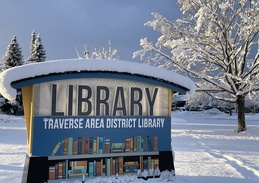Sinking Ship
Nov. 29, 2006
Sinking Ship?Attorney takes aim
at Coast Guard plan
As one activist group puts it, the U.S. Coast Guard has proposed plans to “turn the Great Lakes into the world’s largest freshwater shooting range.”
The Coast Guard plans to fire a mounted M-240B machine gun and an M16 rifle on boats and targets in order to prepare for potential terrorist attacks on bridges, canals, and locks—not to mention 13 nuclear power plants—situated on the Great Lakes. In fact, it has already held 24 weapons training exercises without hurting anyone.
The Coast Guard says it will make safety a paramount concern, but boaters and fishermen fear getting shot. A group called Citizens for Lake Safety proposed that the Coast Guard practice with closed shooting ranges on land.
Illinois attorney Steven Pollack, who just passed the bar this month, says that the best way to stop the plan is with a legal challenge. He believes the lead bullets will pollute the Great Lakes, the source of drinking water for 42 million Americans. (The Coast Guard has countered that an environmental analysis by the consulting group, CH2M Hill, predicts the lead concentrations would be well below EPA standards.)
Here’s a quick interview with Pollack.
NE: I know your big concern is about the lead they’d put in the lake. Can you expound on your concerns, and what law you feel it might break?
Pollack: This definitely violates several laws. My public comments go into detail on the triggering actions leading to the violation of particular laws. (See: www.ecoesq.com)
But to give you just the list, the discharge of hazardous lead waste from the training violates the Rivers and Harbors Act, the Safe Drinking Water Act, the Clean Water Act (CWA), the Resource Conservation and Recovery Act (RCRA), the Comprehensive Environmental Response, Compensation and Liability Act (CERCLA), and the Great Lakes Water Quality Agreement with Canada. Most of the statutes allow citizen suits if the U.S. EPA fails to diligently enforce them.
NE: Do you know of anyone who is concerned about the safety aspect? I’m wondering how far a bullet can travel on the lake. I believe even a rubber bullet can be deadly.
Pollack: Many boating and fishing organizations expressed concern over the safety issue. Some even commented that the zones are in valuable fishing areas or in shipping lanes. I posted a link below. A bullet can travel two miles horizontally. On the rubber bullets, I don’t know.
NE: I’m also wondering how the Coast Guard even feels about this, given that in Northern Michigan they’ve been mostly about rescuing people.
Pollack: It does make you wonder. They have a good guy reputation, but this plan is so over the top. Maybe with the new Congress we will get some political help. But I have been fighting a landfill on Lake Michigan for 10 years, since 1996, and the Clinton administration was not so easy to work with either. I think they all take us for granted and then complain when we vote independent and “throw” the election.
NE; Do you know where this is in the process? Is there still an opportunity for public comment?
Pollack: No, the public comment period was extended by 30 days but ended on 11/13/06. There were about 900 comments from individuals, governmental bodies, and organizations. The closed docket where you can read all the comments is here: www.dms.dot.gov.
Now we wait for the Coast Guard to decide what to do. Part of the problem is that the proposed rule is framed around the issue of creating permanent exclusionary zones, not the training program itself or the environmental impact. The Coast Guard has already done a couple dozen training exercises in January 2006 with temporary safety zones, which they apparently feel is alright.
Now that I am an attorney (newly admitted in Illinois on 11/9/06) I can properly litigate this issue. Unfortunately I need support to work on this issue for more than my spare time.
Steven B. Pollack, executive director of the Blue Eco Legal Council, can be contacted at P.O. Box 1370, Highland Park, IL 60035 or call 847-436-9566.
Changing the world... again
Guilt-free coffee sellers raising funds to build an Ethiopian school
A new documentary, “Black Gold” has nothing to do with Traverse City Central’s school colors, but with people shelling out $3 for a cup of coffee, a few pennies of which actually land in the hands of the people who pick the coffee beans.
Folks from the Higher Grounds Trading Company in Lake Leelanau have teamed up with the Great Lakes Bioneers and the Neahtawanta Center to screen “Black Gold” as a fundraiser to raise $20,000 for a much-needed school in Ethiopia.
The screening is on Tuesday, December 5 at Milliken Auditorium (details below).
The Ethiopian Fair Trade export cooperative takes the lead role in “Black Gold“ as the documentary tells the story of our obsession with coffee. It follows an Ethiopian coffee bean through its many steps and destinations until it’s poured into a cup.
Coffee is the second most valuable trading commodity in the world after oil, and yet coffee farmers across the globe are forced to abandon their fields because they make so little money. Nowhere is this paradox more evident than in Ethiopia, the birthplace of coffee.
Jody and Chris Treter of Higher Grounds have visited Ethiopia to work with the Oromia Coffee Farmers Cooperative Union, a group of farmers who sell coffee to them at a “fair trade” price.
During their visit to Ethiopia, they developed a close friendship with Tadesse Meskela, the film’s central character. He is on a mission to save his 74,000 struggling coffee farmers from bankruptcy. His journey takes on the coffee industry and the world trading system of everyday coffee buying and selling. He was in Traverse City in April to speak about his
work for Ethiopian coffee farmers, but won’t be able to attend the documentary screening.
With only 65 percent of primary age children having access to school and a literacy rate of just 34 percent, coffee farmers have told the Treters that they believe their way out of poverty is through education. So the Treters have made it their mission to build a school. Their goal is to raise $20,000.
Chris said that most school children can’t get even basic education and those that do must cram into small rooms with over 100 other students.
The Treters will match $3,000 of their own money for the school’s construction and aim to raise a total of $20,000. They’ve already received a $3,000 check after an article ran in the Detroit Free Press.
The couple has a remarkable track record. In addition to setting up a company in 2002 that sells fair trade coffee, they raised nearly $20,000 last year for water projects in Chiapas, Mexico. Two water projects have been built, benefiting hundreds of Mayans.
Coffee from Tadesse and the farmers featured in the film are available in grocery stores, cafes, and restaurants throughout Northern Michigan.
The Dec. 5 event starts with a pre-movie party at the Unity Fair Trade Marketplace store behind Union Street Station on Front Street, from 4p.m. to 6 p.m.
Doors will open at 6:30 p.m. at Milliken Auditorium for an Ethiopian coffee reception. Tickets are $5. You may also purchase tickets and pick up a donation envelope at Oryana Food Cooperative, Green Island or Unity Fair Trade Marketplace.
For info, contact Chris Treter at
231-256-9687 or visit www.highergrounds
trading.com.
Trending

Our Top Stories of 2025
Each year, we look back at the stories we’ve shared over the last 12 months and pull together the ones that got the mo… Read More >>
Winter Break at the Library
Trying to keep the kids busy while school is out? Head to the library! Dec. 22, take your 12+ tweens and teens to the Mesick… Read More >>
Umbo Is Coming...to The Little Fleet
Winter isn’t just coming—it’s already here. But if you want a break from the December blues, head to The L… Read More >>


